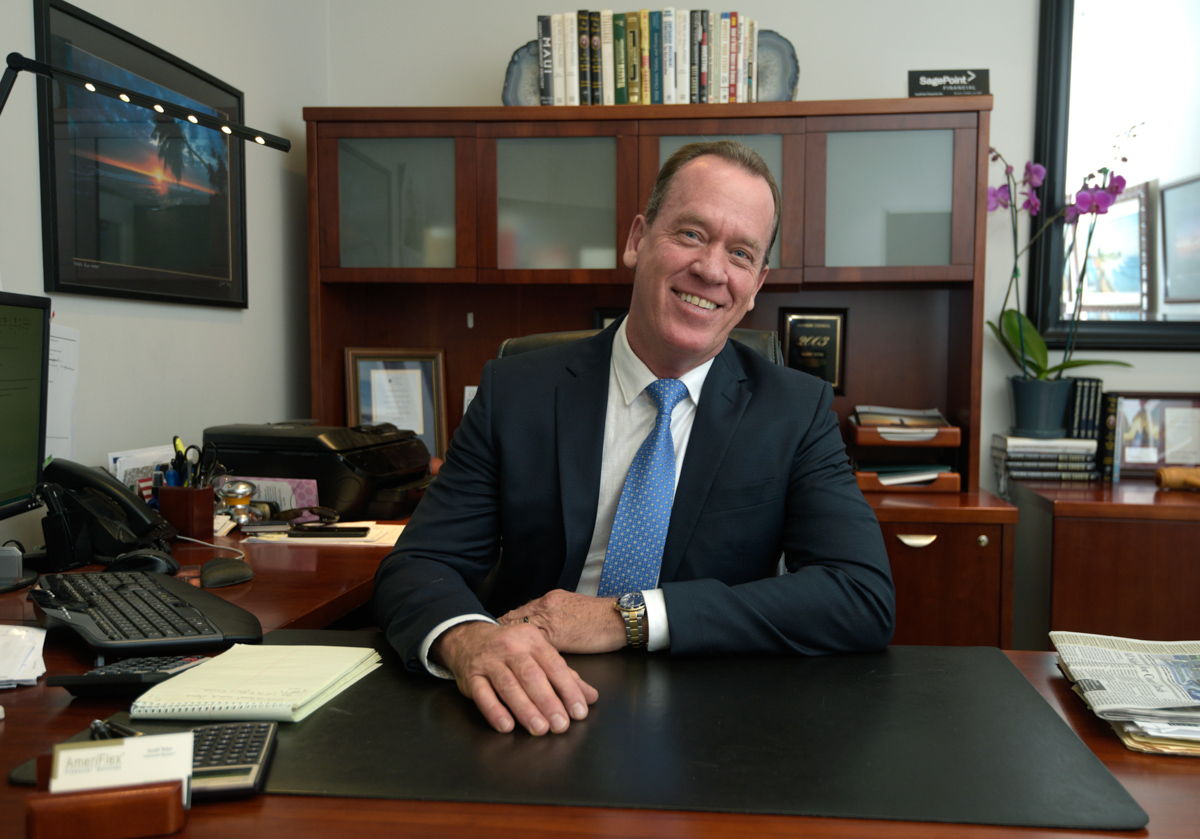Proper Planning for Retirement
Financial Literacy Becomes Increasingly Important as We Age

Can I retire? When should I retire? How much money will I have when I retire?
Retirement is meant to be a relaxing time, but with the disappearance of pensions, longer life expectancies, and an increasingly globalized economy, Americans are finding retirement planning to be particularly stressful.
I spoke with Scott Teter, who is known as “the money therapist professional” at AmeriFlex and has more than 30 years of experience as a financial planner for seniors, and asked him a few questions about retirement planning.
Why is it important for seniors to see a financial planner? In life, we have three big things we save for: buying a home, helping kids through college (if we have kids), and then the most expensive, retirement. And I think one of the key aspects of planning for retirement is the psychological facts of money, or fear of making a mistake with our money, which many times creates an environment where people choose to do nothing.
Because analyzing the risk around something that they’re emotionally attached to can be very hard for individuals to do on their own, having someone who is acting in their best interest in mind can help them navigate the emotions of fear and greed. In essence, financial planners help people figure out how to live off the income they’ve accumulated for retirement and/or help them in the accumulation process.
What is the most common mistake people make concerning retirement planning? Well, it used to be that you could leave your savings in a bank account and get a decent rate in return, and while current interest rates are getting better, we will never see the high interest rates we saw in the ’80s and ’90s again. So the biggest mistake in today’s market is not keeping up with taxes or inflation and leaving your money somewhere where it doesn’t get any return. Which can lead to you eventually running out of money and having to go back to work. And that could go the other direction: Being too aggressive with an investment that isn’t right for you and having it drop in value is a common mistake as well.
What are some of the generational differences? Many people — especially if they are Depression era, like my parents — they hold on to everything, and they won’t spend a cent, so they work longer than they need to; they don’t enjoy their retirement, and they retire when they’re too old. And then there’s some of the younger crowd — my generation, the baby-boomer demographic — and they want to retire at 60.
See ameriflex.com.



